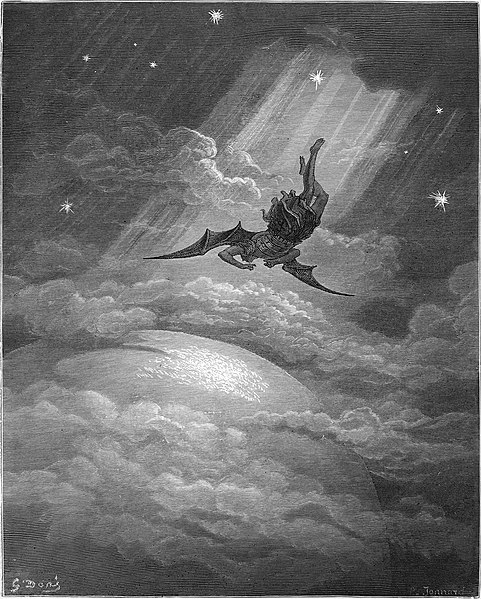Hubris, or less frequently hybris, describes a personality quality of extreme or excessive pride or dangerous overconfidence and complacency, often in combination with arrogance. The term arrogance comes from the Latin adrogare, meaning "to feel that one has a right to demand certain attitudes and behaviors from other people". To arrogate means "to claim or seize without justification... To make undue claims to having", or "to claim or seize without right... to ascribe or attribute without reason". The term pretension is also associated with the term hubris, but is not synonymous with it.
Illustration for John Milton's Paradise Lost by Gustave Doré (1866). The spiritual descent of Lucifer into Satan, one of the most famous examples of hubris.
Pride is defined by Merriam-Webster as "reasonable self-esteem" or "confidence and satisfaction in oneself". Oxford defines it as "the quality of having an excessively high opinion of oneself or one's own importance." Pride may be related to one's own abilities or achievements, positive characteristics of friends or family, or one's country. Richard Taylor defined pride as "the justified love of oneself", as opposed to false pride or narcissism. Similarly, St. Augustine defined it as "the love of one's own excellence", and Meher Baba called it "the specific feeling through which egoism manifests."
The Father and Mother by Boardman Robinson depicting War as the offspring of Greed and Pride
Pride parade, Düsseldorf 2017
Detail of "Pride" in The Seven Deadly Sins and the Four Last Things by Hieronymus Bosch
"The Fallen Angel" (1847) by Alexandre Cabanel, depicting Lucifer





